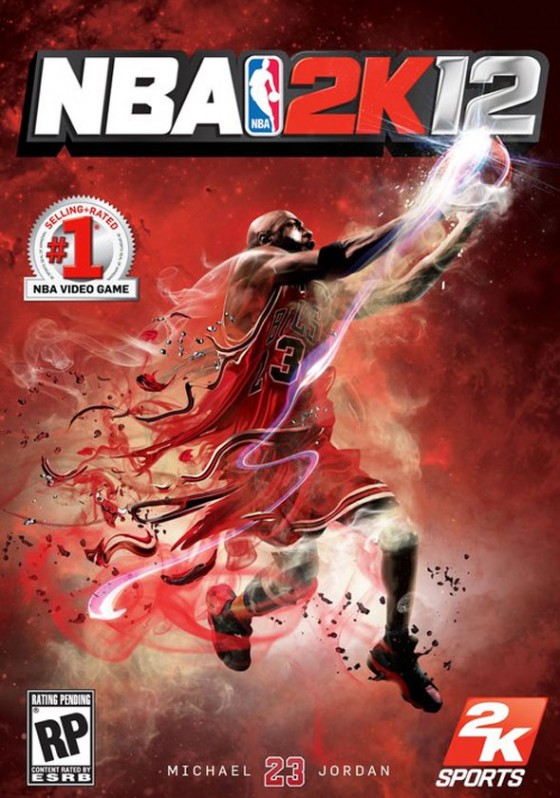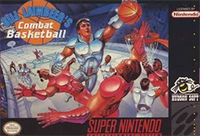NBA 2K12: A review…
…of its claim to authoritativeness.
(For stars and rating, read on.)
Julius “Dr. J” Erving. Earvin “Magic” Johnson. Larry Bird. Kareem Abdul-Jabbar. Michael Jordan. These faces and more stare out in carefully wrought pixels as they move lithely around computer-generated opponents and complete signature moves. Ahh, the power of 2K12, the newest in a vaunted line of basketball video games, which hits stores today.
NBA 2K12: a new height in sports gaming. At HT, we have (non-) exclusive access to parts of the game that any fan who has visited the NBA 2K12 site has seen. How dare we make the claim, then, that this is a review? Simple: this is a review of the claim that the game makes, viz., that NBA 2K12 will solve, finally, the question of which team is the greatest. A large claim and one that, I daresay, a reader will agree makes HT’s claim seem less preposterous. How can a game make a claim of such import? Let us enter the game and review its pretension fully.
Before we dissect NBA 2K12 further, let us quickly step down memory lane and remind ourselves of the history of NBA video games.
We all remember NBA Live—the incarnation that I played on Sega Genesis featured semi-realistic gameplay, stats, catchy tinny music, and the occasional three-pointer from the opposite baseline à la Herb Williams. In short: BORING. At HT, we look for the baddest, toughest, and frankly most ridiculous. Where else to look than Dennis Rodman’s first home, the Detroit Pistons? Enter Bill Laimbeer’s Combat Basketball (BLCB).
Players dodged missiles thrown by the crowd, cold-blooded robots, and Bill’s sharp elbows (encased in armor) to win glory. Think Running Man meets basketball in a most 1980s way—and set in 2030 to boot.
How does this connect to 2K12? The answer is obvious:
- 2K12 possesses patently better graphics and gameplay.
- BLCB combines two gaming styles (shoot ’em up and sports), which is a no-no in today’s world. Mario Tennis was fun, yes, but even that just tweaked sports. 2K12 focuses on what we want most: basketball.
- 2K12 features obviously superior players to Laimbeer. (The good Doctor J scribbles his approval to prescription paper and pins it here.)
The paltry attempt to cash in on World of Warcraft and similar games is laughable, but the humor and storyline deserve some points—points which are immediately taken away due to a disturbingly insensitive reference to Kristallnacht, “Night of the Broken Glass,” which historians view as a major step in the path towards the Holocaust. NBA 2K12 easily brushes Barkley aside with its superior graphics (seriously, that text is so 1983), historical accuracy, and, frankly, lack of an implausibly silly plot.
Hors d’oeuvres over.
Nevertheless, both games featured here are linked to NBA 2K12 in their bending of history: Barkley and Laimbeer both compete in alternate post-cataclysmic universes. On the other hand, 2K12 makes an interesting historical claim by positing its ability to end, once and for all, the question of which team is the greatest. Let’s view one of the many trailers:
Jordan himself invites us to beat the 1995-96 Bulls. Fans of this blog may note a bias towards Jordan and the Bulls, at least in terms of coverage, but none may deny that their regular season record, 72-10, or their total record, 87-13, is unmatchable.
What 2K12 allows players to do is not so much to rewrite history or to live in a crazy future universe as to pit different combinations of teams against one another. So far, so good. However, the question still remains: is this valid? The current film Moneyball starring Brad Pitt looks at another sport, baseball, and the use of statistics to build a winning team. However, we’re talking about basketball. To borrow from Allen Iverson, “We ain’t talking about the game. We’re talking about baseball. Not the game, not the game. Baseball.” Baseball and basketball are two distinct sports (or rather, baseball is a pastime highly distinct from basketball, a real sport). The claim that basketball teams may simply be re-created from algorithms must strike the fan as suspect. True, assists per game, minutes per game, etc. may be entered; but what about team chemistry? What about the effect of a stadium or of fans? For example, note that the United Center, the stadium of the Chicago Bulls (and the Chicago Blackhawks), uses an organ designed to create the loud, intimidating effect of the organ at the old Chicago Stadium. How does a game capture that effect? What about the “Spike Lee effect,” i.e., playing harder in order to shut up an obstreperous fan? Will Reggie Miller flash his famous choke sign?
The real question, therefore, is to ask whether or not 2K12 lives up to its billing as the final arbiter of basketball’s questions. The answer is no; some fans will always doubt one verdict, differences between gamers’ skill levels mean that one day the 1995-96 Raptors will defeat the Bulls? Oh wait, that happened in real life. Conversely, will the Raptors not defeat the Bulls and thus contradict history? Time will tell. Additionally, to pull back from the game and to think of the economic issues at stake, the game will never fulfill its promises because NBA 2K13 would never sell otherwise. Be prepared for future pronouncements of greatness—and meet them with a healthy dose of skepticism.
However, as I wrap up this post, I note that there is a silver lining to the game. Yesterday, as I disembarked from the metro, I fell into conversation with a woman who was walking in my direction about the NBA lockout. After chatting amiably and parting after a few blocks, it hit me that NBA 2K12 could serve a vital purpose in this economy. Envision this: in the absence of a season, players on teams could fight out for the championship by playing themselves in a major televised spectacle. Rookies, of course, would have their statistics created by a computer model that accounts for their previous seasons weighted by historical performances of rookies. Coaches would call substitutions by (hot) unplugging controllers and putting in new ones. Retro jerseys would abound. La-Z-Boy will be a major sponsor of plus gaming chairs, and Sony and Samsung will claw at one another for the flatscreen contract.
So, Lebron and Dwayne and Dirk and everyone else: grab a bag of snacks and your comfy sweatpants and head for the ESPN studio. Oh, and don’t forget your Rumble Pak.
For readers waiting for stars/a rating, sorry. Tough luck.



